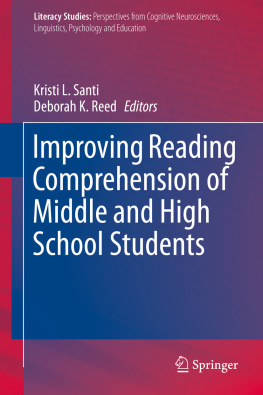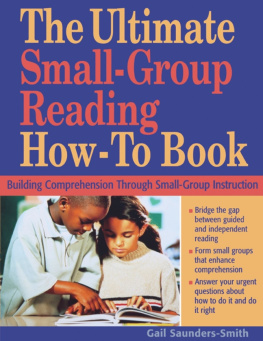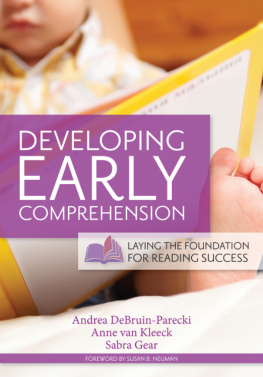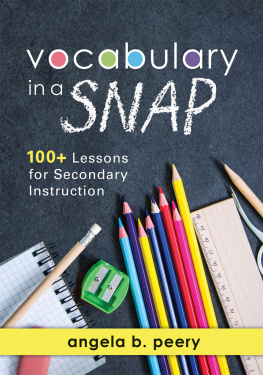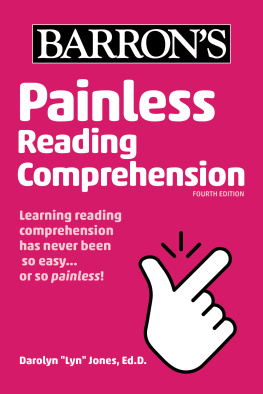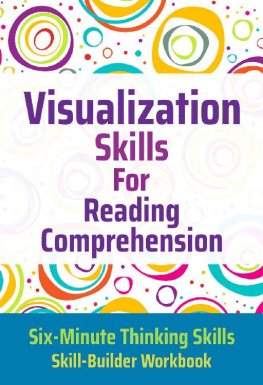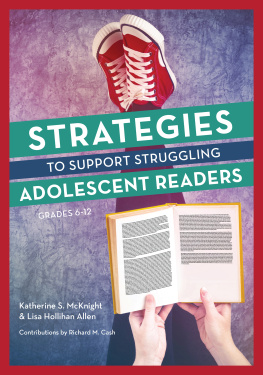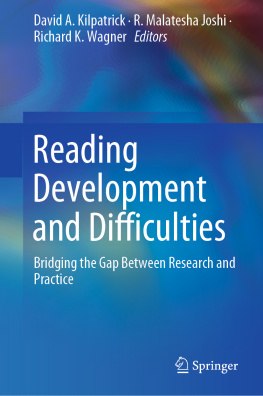Springer International Publishing Switzerland 2015
Kristi L. Santi and Deborah K. Reed (eds.) Improving Reading Comprehension of Middle and High School Students Literacy Studies Perspectives from Cognitive Neurosciences, Linguistics, Psychology and Education 10.1007/978-3-319-14735-2_1
What Do Models of Reading Comprehension and Its Development Have to Contribute to a Science of Comprehension Instruction and Assessment for Adolescents?
Abstract
Cognitive models of reading comprehension provide a starting point for asking theoretically-motivated and empirically-driven questions relevant to understanding the reading comprehension of adolescent students. This chapter provides an introduction to the volume by reviewing component skills approaches and process models of reading comprehension followed by a discussion of selected empirical work related to these models. Developmental and individual differences in key comprehension-related processes from these models are discussed with particular reference to adolescent readers. Characteristics of discipline-specific texts that affect comprehension in middle school and high school students are also examined. Implications of this research for informing reading comprehension assessment, instruction, and interventions through the adolescent years are provided, with reference to the other chapters in this volume.
Models of academic skills are important for organizing what is known about skill development and performance as well as for guiding research on instruction, intervention, and assessment. This chapter presents an overview of cognitive models of reading comprehension and empirical work on the typical and atypical development of reading comprehension to provide a lens through which comprehension in adolescent students can be viewed. Because of considerable gaps in our knowledge of the development of comprehension skillsparticularly in older students and for the types of texts that these students must read, understand, and use to learnI pose a series of comments and questions in the chapter that might be fruitful to pursue in order to inform research in the domain of adolescents reading comprehension.
Reading comprehension is the product of processes that operate during reading to create a mental representation of the situation described by the text, referred to as a situation model (Kintsch, ). The resulting mental representation includes information provided by the propositional content of the text that is integrated with the readers knowledge to provide an evolving understanding of what is read. There are several approaches to understanding and modeling reading comprehension, including those that focus more on describing component skills that contribute to text comprehension and those that describe the process of comprehension or how comprehension of text unfolds over time to result in the construction of the situation model. These approaches represent different levels of explanation and investigation. The aim of this chapter is not to compare these various approaches, but to use them as a starting point for asking theoretically-motivated and empirically-driven questions relevant to understanding the reading comprehension of adolescent students. Component skills approaches and process models of reading comprehension are reviewed briefly followed by a discussion of selected empirical work related to these models. Potential implications of this literature for understanding reading comprehension through the adolescent years are provided, with reference to the other chapters in this volume.
Process Models of Reading Comprehension
Process models such as the Construction-Integration model (Kintsch, ) describe the iterative and dynamic processes used to construct representations of the text during reading. In these models, cognitive processes are engaged to maintain both local and global textual coherence through the linking of pronouns with their referents, the integration of information between sentences both adjacent in the text and across larger text distances, and the retrieval and integration of information from the text with ones store of general world knowledge or specific topic knowledge.
Process models, such as the Landscape Model (van den Broek et al., ).
In cognitive process models, some comprehension processesparticularly those important for maintaining local coherenceproceed in an automatic fashion using low effort, fast-acting memory retrieval processes (McKoon & Ratcliff, ).
Although these models can accommodate individual differences in reader characteristics, they are not developmental models. As such, the discussion of how reader characteristics affect text processing focuses on text-level comprehension skills and not on variations in word decoding. In contrast, component skills models explicitly include word decoding as a potential source of variability in explaining reading comprehension. This is important for understanding the sources of reading comprehension difficulty in school-age populations, including students in middle school and high school.
Component Skills Models of Reading Comprehension
In component skills models, the hypothesized component skills act as sources of variance in explaining performance on reading comprehension tasks. At the broadest level of component skills models is the Simple View of Reading or SVR in which reading comprehension is the product of decoding and language comprehension (Hoover & Gough, ). Implicit in the model is the idea is that the two components in the equation, and hence their product, reading comprehension, vary across development and individuals.
The SVR has provided a useful heuristic for guiding research and practice, but there is recognition that it does not capture the complexity of reading with respect to how word decoding (including fluency) and language comprehension are conceptualized; it may not account for some aspects of reading performance in particular subgroups, such as second language learners; and the relations of components to reading comprehension may vary as a function of the way in which reading comprehension is measured (review in Kirby & Savage, ).
One component skills model that tests the relation of component skills to each other and to reading comprehension, specifically in adolescent students, is the Direct and Inferential Mediation or DIME model (Cromley & Azevedo, ) measured component skills and reading comprehension at a latent level with a large sample of middle school and high school students. When method variance was taken into account (i.e., controlling for the fact that several of the tasks used reading to measure the component skills of reading comprehension), inference/integration had the largest direct effect on reading comprehension followed by word and world knowledge. In fact, word and world knowledge were found to be so highly correlated at the latent level in adolescents as to be one construct. Word and world knowledge were also indirectly related to reading comprehension through inference and strategy-use.
In sum, process models of reading comprehension have been important for describing how representations of the text are constructed through a series of iterative cognitive processes that serve to maintain local and global coherence. They take into account how characteristics of the reader and the text influence comprehension. Component skills models include the influence of word decoding on reading comprehension and attempt to specify what other word- and text-level knowledge and skills account for variability in reading comprehension. They do not focus on how the text itself contributes to reading comprehension, but have been used to test whether the relation of component skills to comprehension might vary as a function of the type of text to be understood (e.g., Cromley et al., ).

